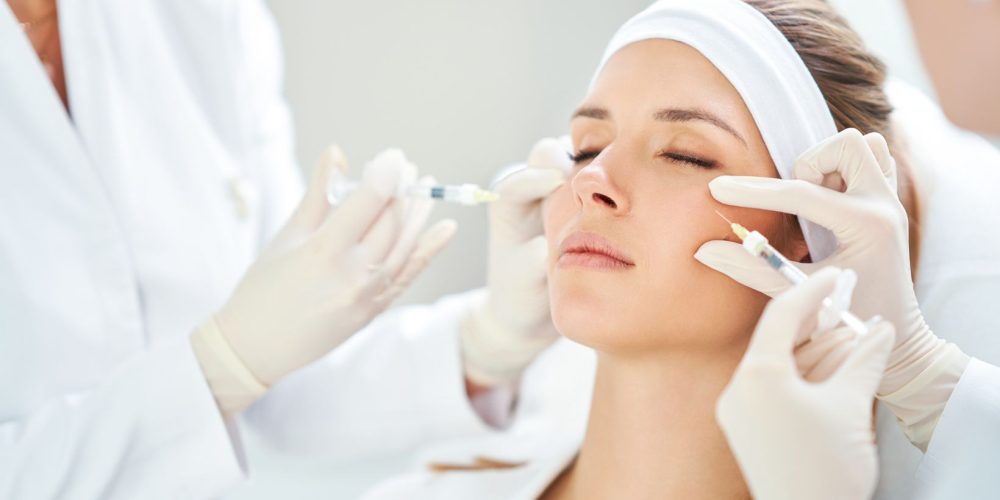A comprehensive cosmetic injection course provides the foundational education and hands-on experience necessary to master the art of cosmetic injectables. Designed for healthcare professionals such as registered nurses, physicians, and nurse practitioners, these courses aim to equip participants with the skills needed to perform cosmetic injections safely and effectively. With a focus on aesthetics, participants learn about different types of injectables, facial anatomy, and techniques to achieve desired results.
Certification programs are an integral part of advancing one’s career in aesthetic medicine. Having a cosmetic injector certification not only endorses your proficiency but also assures clients of your commitment to quality care. Courses range in depth and complexity, offering everything from basic neuromodulator and filler techniques to more advanced strategies in full facial correction. Tuition often reflects the comprehensiveness of the training, ensuring that practitioners receive an education that is both extensive and up-to-date with current industry standards.
Key Takeaways
- Comprehensive courses offer essential skills for safe injectable practices.
- Certification acknowledges expertise and builds client trust.
- Investment in education translates to enhanced service offerings.
Fundamentals of Cosmetic Injections
A comprehensive cosmetic injection course must equip you with a deep understanding of facial anatomy, detailed knowledge of injectable products, and hands-on expertise in injection techniques. Mastery of these components is crucial to ensure safe and aesthetically pleasing results for clients.
Understanding Facial Anatomy and Musculature
To deliver cosmetic injections effectively, you’ll need to precisely comprehend the facial anatomy and musculature. Knowledge of the underlying structures of the face, including the upper face down to the jaw, is critical. You’ll learn to identify key muscles, nerves, and vessels, which will guide where to place injections for optimal results while avoiding potential risks.

This understanding is the foundation of both Botox training and the administration of dermal fillers.
Pharmacology and Product Knowledge
A solid grasp of pharmacology and extensive product line knowledge is important for selecting the right materials for each client.You’ll become familiar with various types of neurotoxins like botulinum toxin (Botox) and dermal fillers, such as Juvederm and Restylane. Your course should cover the unique characteristics, product handling, and specific usage scenarios for each product to manage your patient’s expectations and optimize treatment outcomes.
Injection Techniques and Safety
Injection techniques are at the heart of cosmetic injectable training. Through hands-on training, you’ll learn different methods for administering Botox and fillers, tailoring your approach to each individual’s unique facial features. Emphasizing safety, courses will also cover potential complications and contraindications, ensuring that you can deliver treatments confidently while minimizing risks. This includes understanding when and how to intervene with a strategic approach to any side effects.
By focusing on these fundamentals, you build a framework that ensures you deliver cosmetic injections with precision, care, and the highest standard of aesthetic training.
Clinical Application and Management
Incorporating robust clinical application and management best practices is essential to the effectiveness and safety of cosmetic injection procedures. These fundamentals ensure that practitioners such as RNs, PAs, MDs, and APRNs deliver optimal patient care.
Hands-On Clinical Practice
Your hands-on training should include basic injection techniques for treatments like lip augmentation and full-face assessment, ensuring a natural look while also mastering advanced injection techniques.

This practice not only refines your skills but also enhances your ability to provide tailored, specialized solutions for full correction based on each patient’s anatomy.
Business and Legal Considerations
As a cosmetic injector, it is imperative to understand your scope of practice and the regulatory environment. Comprehension of business operations, along with adherence to compliance, is crucial to practice lawfully. Ensure your professional license is up to date, whether as an MD, DDS, DMD, RN, or other healthcare professional.
Advanced Techniques and Aesthetic Development
The field of aesthetic medicine is continually evolving, requiring you to stay current with aesthetic training. Delve into advanced injectables to keep abreast of the latest modalities and enhance your skill set for complex areas of facial correction, guaranteeing the highest standard of patient care.
Conclusion
A comprehensive cosmetic injection course equips you with the necessary theory and practical skills. Your journey encompasses learning about facial anatomy, proper injection techniques, and product knowledge. After completing the required training, including a prerequisite course in Neurotoxins, you may need to pass a certification exam to validate your proficiency. Continuous education remains crucial to stay updated with the latest practices in this ever-evolving field.






